FIRST VERDICT FOR THE ILL-TREATMENT OF A PARTICIPANT IN THE 2020 PROTESTS
04/07/2023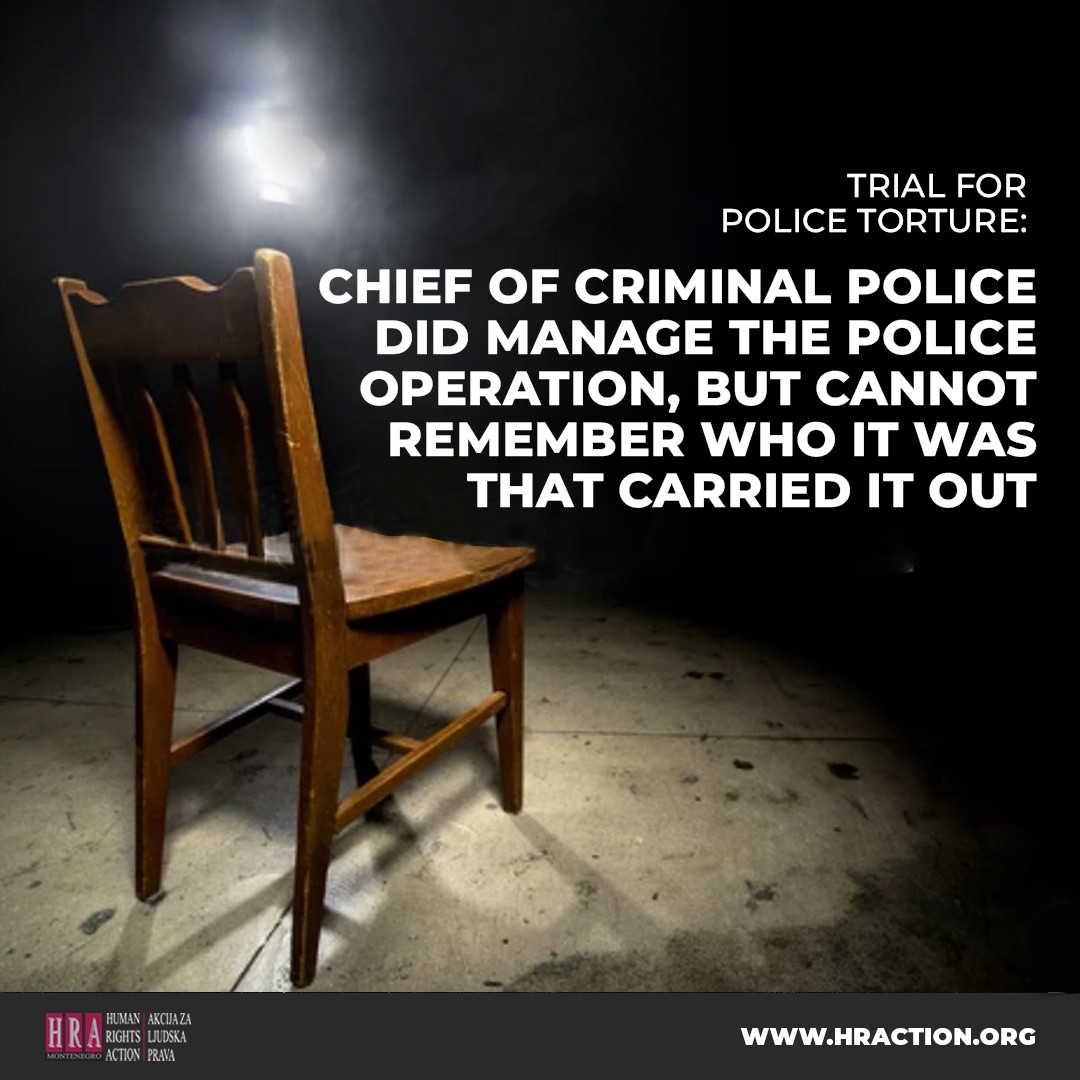
TRIAL FOR POLICE TORTURE: CHIEF OF CRIMINAL POLICE DID MANAGE THE POLICE OPERATION, BUT CANNOT REMEMBER WHO IT WAS THAT CARRIED IT OUT
07/07/202331 YEARS LATER, THERE IS NO JUSTICE FOR THE KLAPUH FAMILY
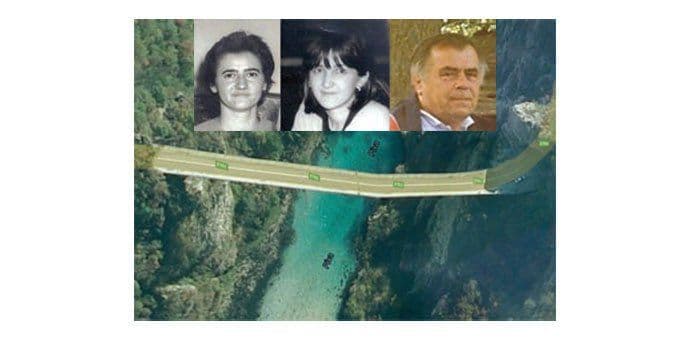
(Fotografija preuzeta sa portala Ljubušaci)
Tomorrow marks the 31st anniversary of the war crime that members of the army of the Republic of Srpska committed on the territory of Montenegro against the Klapuh family. Although this was the first war crime in the country that ended in a final judgment, back in 1996, only one of the five convicted persons actually served a prison sentence. Bringing the remaining three who are still alive to justice requires cooperation of the Republic of Serbia and Bosnia and Herzegovina (BiH) with the state of Montenegro. This will eventually happen if the Montenegrin Minister of Justice shows an interest in putting pressure on Serbia to respond to Montenegro’s request for the extradition of convict Zoran Vuković after more than 7 years, and in finding out BiH’s final position on the application of the law against Radomir Kovač and Zoran Simović in this case.
Minister Kovač did not respond to any of the five letters the Human Rights Action sent to him regarding this subject (HRA).
The HRA joins last year’s appeal by Aleksandar Saša Zeković, a human rights activist, to have the remains of the Klapuh family buried in a dignified manner, at the expense of the state, with state honours and at the location to be determined by the family, especially considering the fact that the verdict has not been carried out despite the passage of almost three decades. Hasan, Ferida and Sena Klapuh were buried by the municipality of Nikšić, at the temporary cemetery near Trebjesa, which serves as a resting place for those who have no family members.
Hasan Klapuh, his wife Ferida and daughter Sena were killed by members of the “Dragan Nikolić” detachment of the Army of the Republic of Srpska in Plužine, on 6 July 1992. For that murder, which was qualified as a war crime against the civilian population, four perpetrators were convicted in Montenegro back in 1996. The High Court in Podgorica sentenced Janko Janjić, Radomir Kovac, Zoran Simović and Zoran Vuković to 20 years in prison each, while their helper Vidoje Golubović was sentenced to 8 months for not reporting the crime and the persons who committed it. The trial was attended only by Golubović, who was the only to have served his sentence, while the others were tried in absentia because they were on the run.
The court established that the defendants had transported three members of the Klapuh family from Foča to Montenegro for a fee. When they reached the Mratinje Dam, on the Piva River, they shot them and pushed them down a cliff.
Convict Vidoje Golubović testified as follows: I got out of the vehicle and, on Janjić’s order, sprinkled sand on the traces of Hasan’s and Ferida’s blood. Klapuh’s daughter Sena was screaming and begging not to be killed, and she started towards the dam through the tunnel. Zoran Simović and Zoran Vuković followed her… Then, there was a shot in the tunnel.
Convict Zoran Vuković was arrested in Serbia in December 2015, at the Kotroman border crossing, based on the international warrant that was issued by Montenegro. The following month, in January 2016, Montenegro submitted a request for his extradition to Serbia. In March of the same year, the High Court in Belgrade found that all the requirements for the extradition of Vuković to Montenegro had been met. However, the Ministers of Justice of the Republic of Serbia – Nikola Selaković, Nela Kuburović and Maja Popović – would not decide on Vuković’s extradition, not even after two urgent requests from the Ministry of Justice of Montenegro, in September 2018 and July 2020, contrary to the bilateral treaty between the Republic of Serbia and Montenegro on extradition, based on which Serbia was obliged to decide on the request “as soon as possible” and inform Montenegro thereof.
Based on information obtained by the HRA, the reason for this is that Vuković has not been in extradition custody since 23 December 2016. Serbia has been hiding the violation of its international obligation to extradite Vuković to Montenegro for six and a half years now. Namely, its Minister of Justice, Maja Popović, is persistently ignoring all urgent requests from Montenegro, the inquiries of the Human Rights Action (HRA) about this case, as well as questions from the media. However, Montenegro is not showing the intention and sufficient interest to bring convicted perpetrators of war crimes to justice either.
The HRA addressed the Montenegrin Minister of Justice Marko Kovač about this case on five occasions in total: in June, July, September and November 2022, as well as in June 2023, but to date we have not received any response about the actions the Government of Montenegro has taken to bring Vuković, Kovač and Simović to justice. The Prime Minister in the technical mandate, Dritan Abazović, also did not provide a response regarding this matter.
The second convict, Radomir Kovač, has been free since July 2013, having returned to BiH after serving the sentence he was imposed by the Hague Tribunal for the crime committed in Foča. Montenegro issued a national warrant in April 2014, which was followed by an international warrant in February 2015.
In February 2021, the HRA was informed by the former Minister of Justice, Human and Minority Rights, Vladimir Leposavić, that the Ministry of Justice of Montenegro sent a letter rogatory to the Ministry of Justice of Bosnia and Herzegovina only in December 2020, asking that Kovač serve his prison sentence in that country. However, in April 2021, the Court of Bosnia and Herzegovina refused to enforce the court decision because the bilateral Agreement on Mutual Enforcement of Court Decisions in Criminal Matters between Bosnia and Herzegovina and Montenegro stipulates that enforcement will not be undertaken if the court decision (the enforcement of which is being requested) has been issued in the absence of the person who was convicted.
As a possible solution to the problem, more than a year ago, in June 2022, the HRA proposed to the Minister of Justice, Marko Kovač, to assign the criminal prosecution of the convicted perpetrators of this crime to Bosnia and Herzegovina, so as to prevent them from being practically amnestied for the war crime they had committed. Branimir Janjević, General Director of the Directorate for International Judicial Cooperation within the Ministry of Justice, agreed at the HRA panel held in January 2023 that “the principle of ne bis in idem probably represents a risk for any prosecutor, but this case justifies the need to consider that principle more flexibly because we don’t know what else to do to achieve justice in this case”. However, we did not receive any feedback from the Minister of Justice as to whether the Ministry actually did anything to achieve justice in this case.
As for the third convict, Zoran Simović, Montenegro also issued an international warrant. The Police Administration of Montenegro has established that he has a registered residence in Bosnia and Herzegovina, but his current whereabouts are unknown.
The fourth convict, Janko Janjić “Tuta”, committed suicide in 2000, when members of the SFOR attempted to arrest him based on the indictment of the Hague Tribunal.


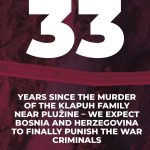
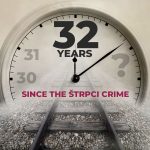
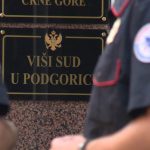
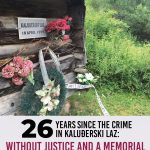

 English
English